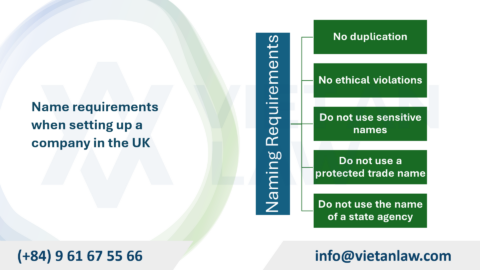Nowadays, contributing capital to establishing a company in Vietnam has become extremely popular. The number of businesses is growing rapidly, operating more diversely and more popularly in the Vietnamese market and around the world. Business owners in the process of contributing capital to establish a business and the process of putting their business into operation will encounter financial difficulties and have a legitimate desire to withdraw their capital contribution to cover living expenses. Vietnamese law and Enterprise Law 2020 have specifically stipulated the conditions and procedures for withdrawing capital, or in other words, conditions for reducing company charter capital in Vietnam. To learn about legal regulations related to conditions for reducing company charter capital in Vietnam, Viet An Luat offers some consulting opinions in the following article.
Capital contribution is an activity whereby the capital contributor commits to contribute his or her assets to the enterprise. Capital contribution to an enterprise is distinguished into 2 cases:
| Type of business | Conditions for capital contribution | Subject contributing capital |
| Multiple-member limited liability company | Within 90 days from the date the enterprise is granted a Enterprise Registration Certificate | Owner: includes all individuals and organizations (minimum 02 and maximum 50) (not in cases prohibited by law) |
| Single-member limited liability company | The owner is an individual or organization (Only 01 owner) | |
| Joint Stock Company | Shareholders (minimum 03 shareholders) | |
| Partnerships | No specified | Partnership members and capital-contributing members |
| Type of business | Conditions for capital withdrawal |
|
Multiple-member limited liability company |
If the owner does not contribute the correct or full amount of capital as committed at the time of enterprise registration, the committed capital contribution will be eliminated, the legal representative must carry out procedures to adjust the charter capital of the enterprise with state management agencies. |
| The company repurchases the capital contribution under the provisions of law and the company’s charter | |
| Refund a part of capital contribution to members according to the proportion of their capital contribution in the company’s charter capital if they have operated continuously for 02 years or more from the date of enterprise registration and ensure payment of all debts and other property obligations after repaying members | |
| Single-member limited liability company | If the owner does not contribute the correct or full amount of capital as committed at the time of enterprise registration, the business owner must carry out procedures to adjust the charter capital of the enterprise with the state management agency. |
| Refund (not fully refund) the capital contribution of the company owner if the company has operated continuously for 02 years from the date of issuance of the Enterprise Registration Certificate and guaranteed after completing the refund procedure, the enterprise will still be able to pay its property obligations to entities related to operations. | |
| Joint stock company | At the time of business establishment:
|
| The company refunds a part of the capital contribution to shareholders according to the shareholder’s ownership ratio in the company according to the decision of the General Meeting of Shareholders when the company has been in operation for 2 years or more (from the date of issuance of Enterprise Registration Certificate) and must ensure sufficient capacity to pay financial obligations to other relevant entities. | |
| The company repurchases sold shares by the law and the company’s charter | |
| Partnerships | For capital contributing members: Failure to contribute the full amount of committed capital will be considered a debt of that Partnership member to the company and may be expelled from the company;
For Partnership members: If damage is caused due to failure to contribute enough capital as committed, compensation must be paid to the company. |
When reducing charter capital, a business may face the following legal consequences: (1) Change in business type, (2) Bankruptcy, and (3) Normal operation.
Although the Enterprise Law stipulates that when businesses want to carry out procedures to reduce charter capital, they must ensure that after completing the procedure, they must be able to fulfill their financial obligations. However, the business depends largely on market factors, so there is no solid basis to ensure that in the short term, the business can guarantee the ability to pay other entities, thus leading to businesses being forced to go bankrupt.
Unlike the two legal consequences above, businesses in many cases still operate normally and there are no financial risks to the business because, during the capital reduction process, legal advice is provided for compliance. following the law and minimizing potential risks for businesses.
The enterprise conducts a meeting between owners/shareholders to decide on reducing the enterprise’s charter capital, then amends the charter, sends a written notification to the state agency, and implements procedures for changing the Enterprise Registration Certificate by the provisions of law.
Based on Article 47 of Decree 122/2021/ND-CP, an enterprise that does not adjust its charter capital after the enterprise has reduced its charter capital will be understood as performing an act of under-declaring capital and subject to the following penalties:
Above is preliminary advice on conditions for reducing company charter capital in Vietnam from Viet An Law. If you need advice on the above issue, please contact Viet An Law for the most effective advice.




